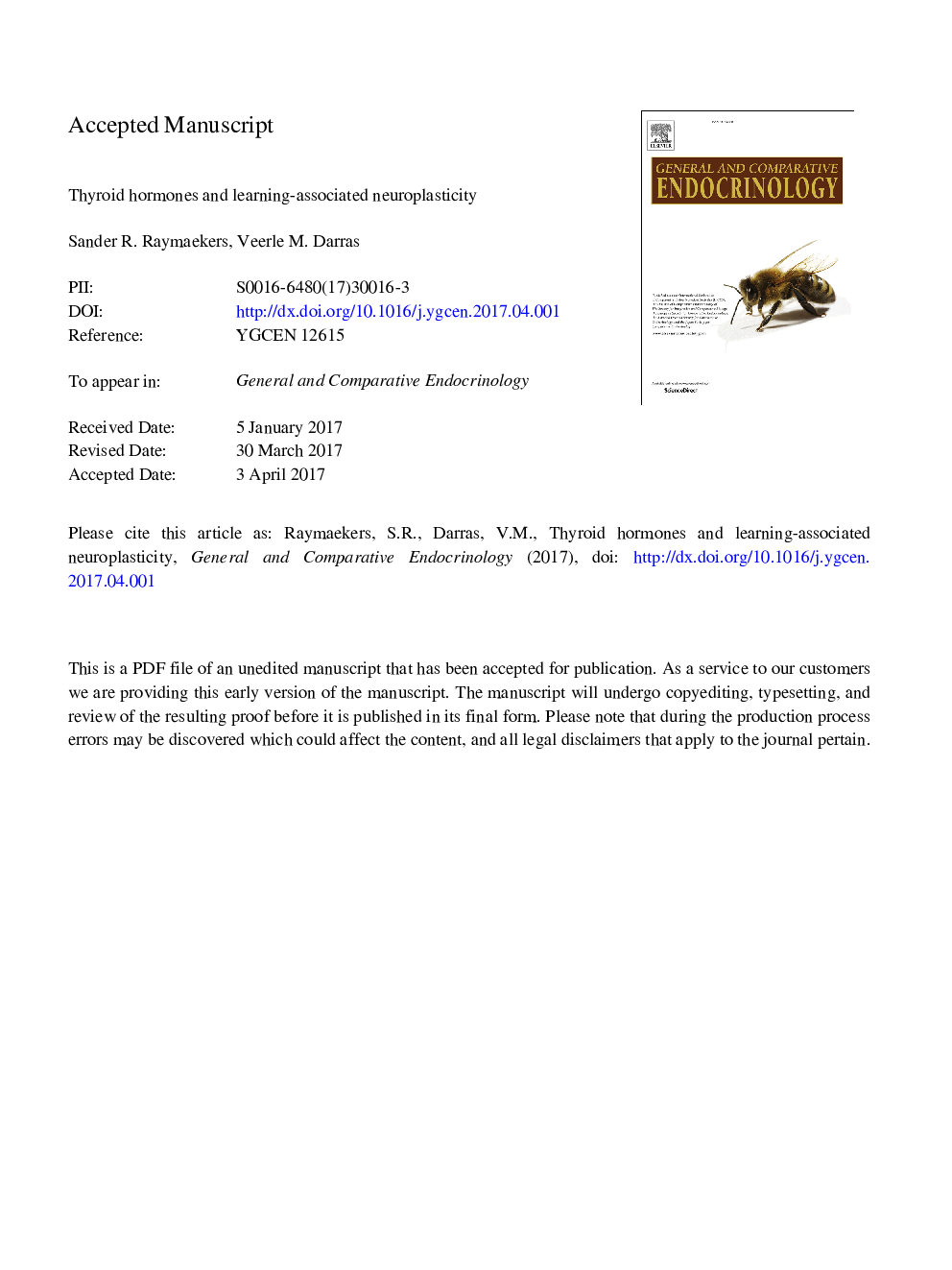| Article ID | Journal | Published Year | Pages | File Type |
|---|---|---|---|---|
| 5587776 | General and Comparative Endocrinology | 2017 | 29 Pages |
Abstract
Thyroid hormones (THs) are crucial for brain development and maturation in all vertebrates. Especially during pre- and perinatal development, disruption of TH signaling leads to a multitude of neurological deficits. Many animal models provided insight in the role of THs in brain development, but specific data on how they affect the brain's ability to learn and adapt depending on environmental stimuli are rather limited. In this review, we focus on a number of learning processes like spatial learning, fear conditioning, vocal learning and imprinting behavior and on how abnormal TH signaling during development shapes subsequent performance. It is clear from multiple studies that TH deprivation leads to defects in learning on all fronts, and interestingly, changes in local expression of the TH activator deiodinase type 2 seem to have an important role. Taking into account that THs are regulated in a very space-specific manner, there is thus increasing pressure to investigate more local TH regulators as potential factors involved in neuroplasticity. As these learning processes are also important for proper adult human functioning, further elucidating the role of THs in developmental neuroplasticity in various animal models is an important field for advancing both fundamental and applied knowledge on human brain function.
Related Topics
Life Sciences
Biochemistry, Genetics and Molecular Biology
Endocrinology
Authors
Sander R. Raymaekers, Veerle M. Darras,
